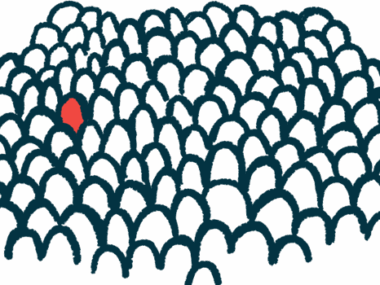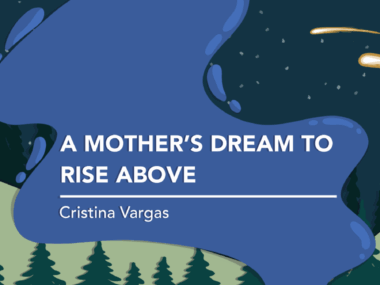We Could All Stand to Be More Like Kids
Written by |

This will be my fourth Christmas without my sister. Taylor lost her life to CLN1 disease (Batten disease) in 2018, yet Mom still hangs her stocking from the mantle every Thanksgiving weekend. My son, Jack, keeps the spirit of Taylor’s beloved singing angels alive, carrying the haloed host everywhere from his playroom to the breakfast table. I’ve heard “Joy to the World” 47 times since Dec. 1, but I don’t mind so much.
‘Tis the season, and not just the Christmas season. Jack’s preschool bases its lesson plans on weekly themes around current events, common subjects, colors, and letters. This month, Jack and his classmates have colored a menorah, listened to traditional Diwali festival music, and danced to Kwanzaa songs. While watching a video of 15 preschoolers bounce to colorful Kwanzaa music, I couldn’t help but notice the air of innocence. The unabashed acceptance. The authentic joy. I thought about how young kids, unlike many adults, love each other without any pretense. In spite of their differences.
This precocious maturity, of course, extends well past cultural and religious observances and politically correct season’s greetings. In fact, the rare disease experience mirrors it in many ways. I know, because I watched it at work often in a life cut short by Batten disease. The students at my sister’s school accepted her struggle with Batten disease more readily than many parents and other adults, and not only her close circle of friends; indeed, the whole student body loved and took care of Taylor, even when she could no longer communicate easily.
Their kindness was for her, not her rare disease
Taylor participated in several editions of the school’s annual talent show, yet the 2008 event stands out most in my memory. It was scheduled for a cold evening in February, the same month Taylor returned from Portland, Oregon, with a shaved head and still-healing injection sites, souvenirs from a neural stem cell transplant that was part of a clinical trial. I recalled the scene, and the kids’ and parents’ vastly different reactions to Taylor’s shocking appearance, in my memoir, “Run to the Light.”
“The following day she returned to school, where she learned her girlfriends had incorporated her into their routine for the upcoming annual talent show, despite her long absence. Her friend Charlotte invited her over in the afternoons to learn the words to the song they’d perform.
“The night of the show, the girls wore matching T-shirts, plastic headsets, and body glitter. Taylor couldn’t join her friends on the makeshift stage for safety reasons. Instead she sat offstage, singing the words to the Cheetah Girls song and snapping her fingers as the other girls performed dance moves for the families packed into the cafeteria.
“While my sister and her friends went through their routine, two moms sitting behind me spoke in hushed whispers.
“What was it Taylor had? Not cancer.
“How much school had she missed?
“How nice of the other girls to include her. She looked different since the fall; maybe it was the hair.”
Taylor’s hair grew back (albeit much thicker and darker than before) in the months following that night, but as Batten disease marched forward, my sister’s differences became impossible to overlook. In the years that followed, Taylor regained her hair yet lost her mobility, her voice, and her ability to swallow food. But her friends never turned cruel. The girls invited her to birthday parties. Saved a seat for her at the lunch table. Cheered her to two 5K finishes. The boys walked her to class. Asked her to dance. And those kindnesses, perhaps more than anything else, infused my sister’s eyes with a magical kind of light long after they ceased to see for her.
We could all stand to be a little more like kids. During this season of holidays and every day.
***
Note: Batten Disease News is strictly a news and information website about the disease. It does not provide medical advice, diagnosis, or treatment. This content is not intended to be a substitute for professional medical advice, diagnosis, or treatment. Always seek the advice of your physician or other qualified health provider with any questions you may have regarding a medical condition. Never disregard professional medical advice or delay in seeking it because of something you have read on this website. The opinions expressed in this column are not those of Batten Disease News or its parent company, Bionews, and are intended to spark discussion about issues pertaining to Batten disease.






Leave a comment
Fill in the required fields to post. Your email address will not be published.